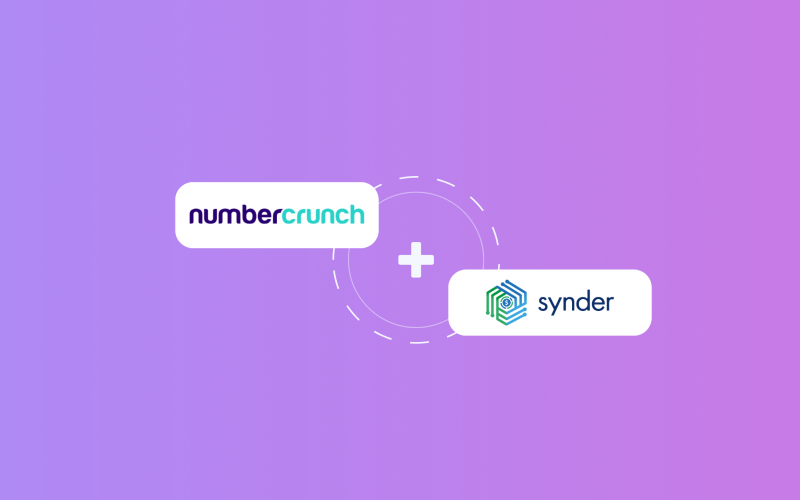Now more than ever, tech companies are under intense scrutiny for their accounting practices, as regulators, investors, and stakeholders closely monitor financial reporting. Even the smallest discrepancies can lead to major financial and reputational risks, making transparency and accuracy more important than ever.
Take Super Micro Computer for example, an information technology firm, whose shares plummeted by 33% in 2024 after it was uncovered that their internal systems didn’t meet the necessary standards for reliable financial reporting. This incident illustrates the heightened risks tech firms face when financial data isn’t accurately tracked or properly automated.
Without reliable systems in place, companies risk compliance issues, investor skepticism, and operational inefficiencies. This is why automation has become a very important tool, minimizing human error, ensuring real-time data accuracy, and allowing finance teams to focus on strategic decision-making rather than manual data entry.
We spoke with Fereshte Moradi, Financial Manager at numbercrunch specializing in the tech industry to gain insight into the unique accounting challenges faced by tech companies and how modern financial firms are addressing them.
The numbercrunch story: How they turned to automation
numbercrunch is a Canadian financial services firm that provides outsourced accounting and CFO solutions for growing businesses. The company specializes in helping startups, tech firms, and service-based businesses manage their financial operations efficiently. Their services include bookkeeping, financial forecasting, budgeting, tax planning, and Virtual CFO support, allowing businesses to focus on growth while ensuring strong financial health.
Automating Stripe-QuickBooks data sync
Tech accounting comes with unique challenges due to the high volume and complexity of transactions, which makes seamless integrations between financial platforms invaluable. Unlike traditional accounting, where transactions may be fewer and more structured, tech businesses often deal with multiple payment processors, subscription models, and microtransactions that demand real-time accuracy.
One of the major challenges Fereshte encountered when managing accounting for tech clients was integrating QuickBooks Online with the payment platform Stripe. At the time, the process of manually reconciling transactions between the two systems wasn’t only incredibly time-consuming but also prone to errors.
This meant that Fereshte had to spend hours checking and re-checking data to ensure accuracy, which made financial management inefficient and left little time for more value-driven tasks. For growing tech companies, where transactions can be frequent and varied, these manual efforts created significant bottlenecks in the accounting process, ultimately affecting cash flow management and financial decision-making.
The situation dramatically changed when Fereshte implemented Synder, an automation software that seamlessly connects Stripe with QuickBooks Online. By using Synder, Fereshte was able to fully automate the transfer of transaction data between the two platforms, eliminating the need for manual transaction checks altogether.
“I don’t need to go back and check transactions one by one in Stripe anymore. All of the invoices and payments go automatically to QuickBooks, which makes the whole reconciliation process much easier.”
The integration allows for real-time updates, ensuring that every payment, invoice, and fee is accurately recorded without any human intervention. That’s exactly the reason why Fereshte recommends Synder to all of her clients who use Stripe.
“It used to take me a full day each month to add transactions manually. Now, I just check everything at the end of the month—it’s much easier.”
Fereshte Moradi, Financial Manager at numbercrunch
From one day of work to just a quick check
Even for smaller and medium-sized accounts, the process of manually entering transactions was a significant time commitment, often taking up to 8 hours each month. On top of that, issues with software glitches or missing transaction details would occasionally arise, requiring Fereshte to reach out to clients for clarification, further adding to the delay. These inefficiencies not only made the financial reconciliation process cumbersome but also detracted from the ability to focus on more strategic tasks.
However, with Synder’s automation, this process has been streamlined considerably. Now, instead of spending hours entering data and troubleshooting issues, Fereshte simply checks the accounts at the end of the month. Automation has made the entire process faster, more accurate, and far less reliant on manual intervention, freeing up time for more valuable work and ensuring clients’ financials are always up to date with minimal effort.
“For smaller and medium accounts it usually took one day in a month to manually enter transactions. Sometimes there were problems with software or I had to go and ask the client about some transactions, so it took even more time. Now it’s easier, at the end of the month I just go and check all the accounts.”
Fereshte Moradi, Financial Manager at numbercrunch
Eliminating the risk of errors with Synder
Manual accounting tasks are inherently prone to human error, and Fereshte has experienced this firsthand. “We’re human, so it’s possible to make a mistake,” she explains, reflecting on the challenges of manually entering data. When performing repetitive tasks like transaction reconciliation, even the most diligent accountants can overlook details or make simple errors, which can lead to discrepancies and extra time spent fixing mistakes. However, with the implementation of Synder, those issues became a thing of the past.
“With Synder, the problem of human error gets eliminated, because everything is automatic.”
By automating the transfer of transaction data between platforms like Stripe and QuickBooks, Synder ensures that the financial records are accurate from the start, minimizing the risk of mistakes and allowing Fereshte to focus on higher-level strategic tasks.
Conclusion: The essential role of automation in tech company accounting
For tech companies juggling tons of transactions and fast-moving finances, doing things manually can cause real problems. Fereshte and the team at numbercrunch experienced this directly. Before automation, reconciling Stripe with QuickBooks took a full day every month, not to mention the back-and-forth with clients to clear up missing details.
Since switching to Synder, that whole process is faster, smoother, and less stressful. Now it’s just a quick monthly check, with everything flowing in automatically and accurately. It’s freed up a lot of time for more valuable work and given clients cleaner, more reliable books. In our tech world, automation is how smart teams stay ahead.
Want to follow numbercrunch’s lead?
By integrating Synder’s automated solution, numbercrunch has helped tech companies save time and reduce costs, empowering them to focus on innovation and growth. If you want to streamline your own accounting processes, sign up for Synder’s 15-day free trial or join our Weekly Public Demo to see how real-time data synchronization and customized automation can drastically improve your efficiency and financial accuracy.






